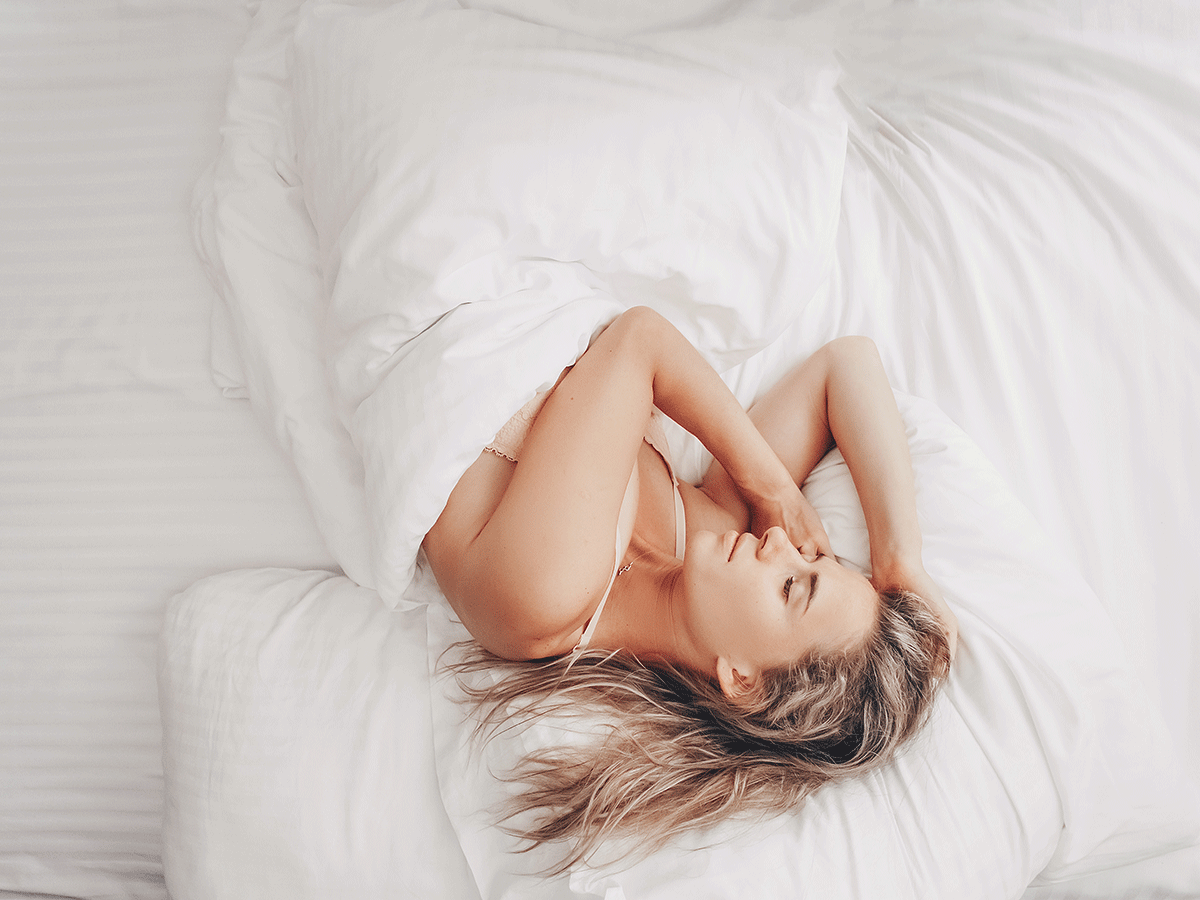
Should I see a sleep doctor?
Doctors who treat insomnia and sleep issues include neurologists, psychologists, and psychiatrists, among others. If you’re dealing with any of the following issues, it’s worth looking into seeing a sleep doctor. Visit your primary care doctor who could refer you to the right specialist for you. Here are some sneaky signs you should book an appointment.
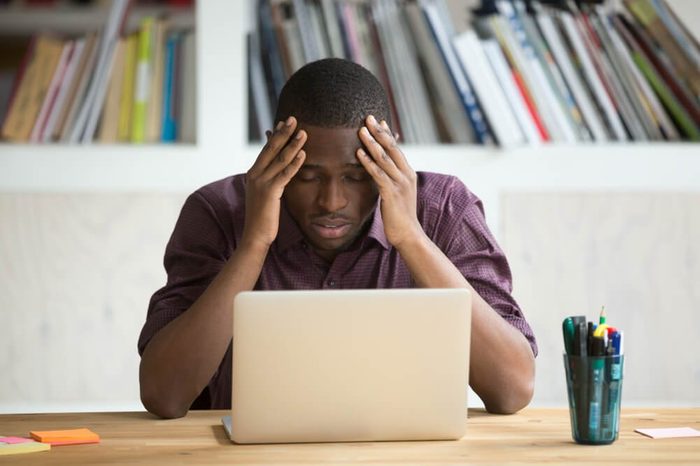
You constantly drop the ball
Poor sleep quality has direct effect on concentration—everyone has experienced that. But a restless night also hurts memory. (Also, there are some sleep habits that increase your risk of Alzheimer’s Disease.) “When sleep suffers, so does cognitive performance. In fact, it may be the reason why you spaced on that dental appointment, put the milk away in the pantry and the cereal in the refrigerator, or forgot to call that client back,” says insomnia specialist and board-certified nurse practitioner Ellen Wermter.
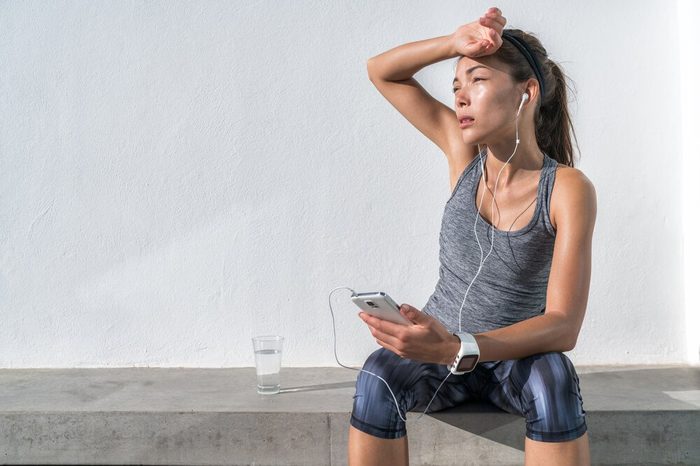
Your physical performance is sub-par
Adequate sleep impacts physical performance. “Studies have shown slowed reaction times, reduced accuracy, and decreased endurance in subjects deprived of sleep,” says Wermter. “If your tennis game isn’t what it used to be, take a closer look at your sleep to elevate your game. Is your weight training moving in the wrong direction? Studies have suggested that prolonged partial sleep deprivation may reduce maximal ability in weight lifting, so make more sleep part of your pre-workout ritual.”
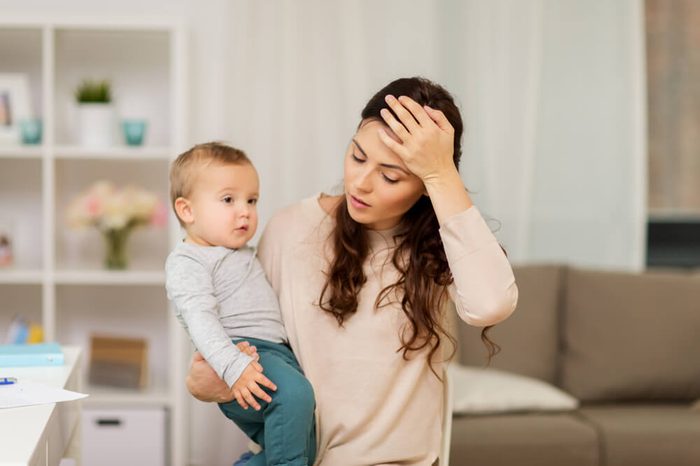
You’re disconnected from your family and friends
Feeling less connected to your friends and family? “Sleep deprivation can cause a significant reduction in our feelings of empathy for others,” says W. Christopher Winter, MD, sleep specialist and author of Sleep Solution. Dr. Winter also notes that when you’re sleep-deprived, your capacity to accurately read the emotions of others, control and communicate your own emotions, and use good judgment to manage your relationships is compromised. “Lack of quality sleep impairs your emotional intelligence and can make for a rocky road of misunderstandings and disagreements with spouses, coworkers, and friends.”
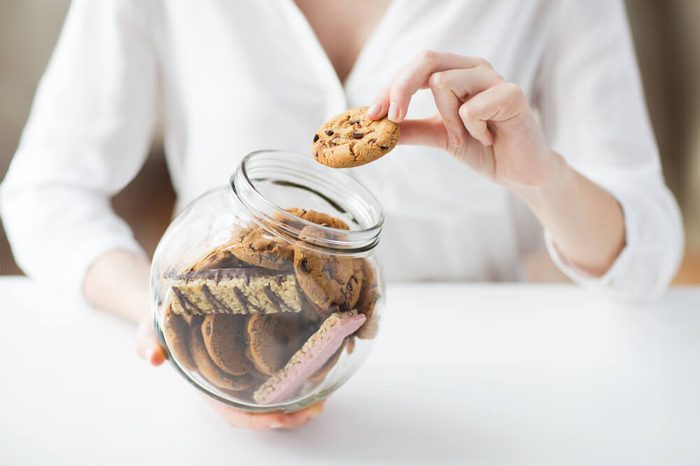
You have unhealthy cravings
Sugar and carbs are easy to love, but if you find yourself craving them more so than usual, sleep may be to blame, according to 2019 research published in eLife. “When you don’t get enough sleep, your brain craves glucose to keep itself running,” says Adam Tishman, co-founder of the personalized mattress company Helix. “Getting a full eight hours of sleep is an essential part of dieting and healthy living.”
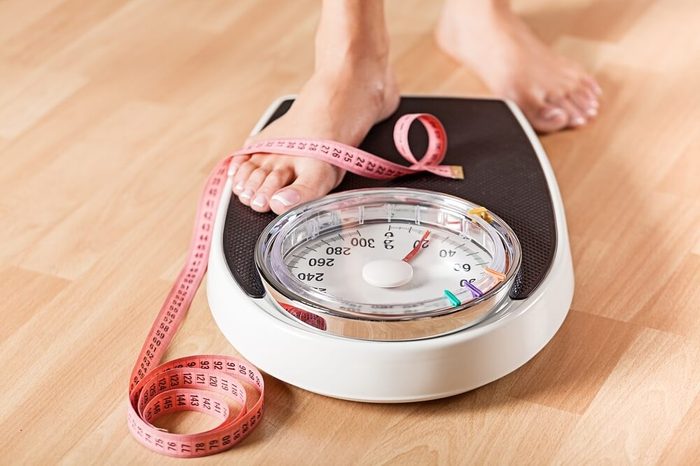
You’re gaining weight
If you’re overeating carbs to make up for lost sleep, you’ll likely pack on pounds. “While weight gain is often associated with physical activity and eating habits, it is also deeply linked to sleep,” says Tishman. “In fact, many studies show that people who sleep for less than six hours per night are more likely to be overweight. If you notice yourself unexpectedly gaining weight (your nutrition and physical activity haven’t significantly changed), this might be a sign that you’re not getting enough sleep.”
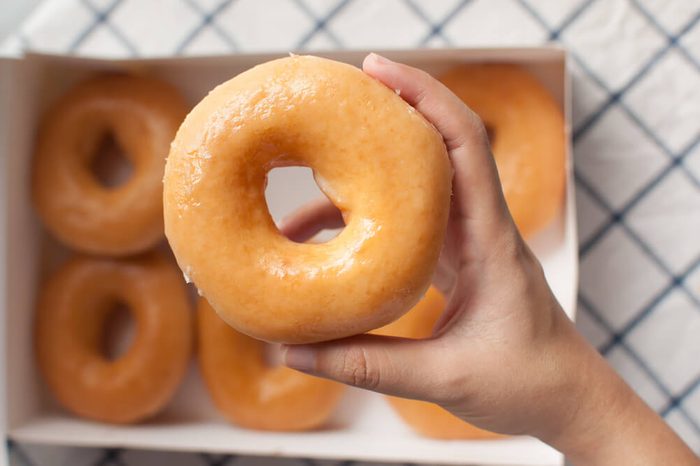
You’re impulsive
People become less inhibited when they’re exhausted and more likely to do or say things they normally wouldn’t. “For instance, if it’s more difficult than usual to say no to that candy bar or pastry or you find yourself lashing out at a coworker, you might be in dire need of some shut-eye,” says Tishman. (Here’s how many extra calories you eat when you’re sleep deprived.)
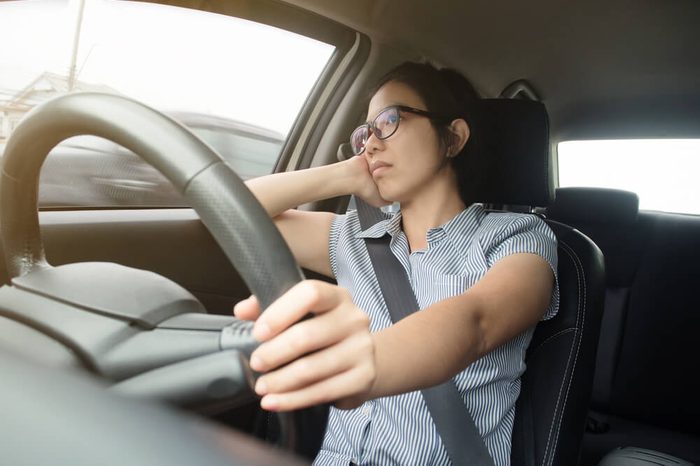
You feel drunk
According to Lorenzo Turicchia, a sleep scientist and biometrics expert at Bedgear, a lack of sleep not only magnifies the effects of alcohol, but also makes you feel like you’re drunk even if you haven’t had a drink. “Being sleep-deprived at the wheel is just as bad as being under the influence while driving.” (See the serious conditions linked to poor sleep.)
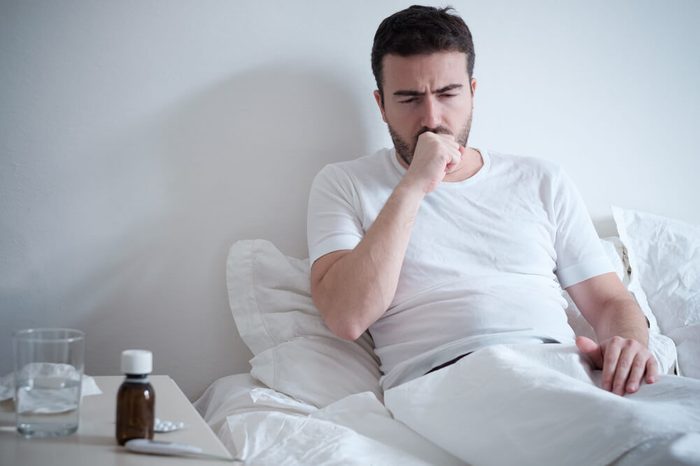
You’re unable to fight off a common cold
Sleep is a way for your body to restore and repair itself. “If you’re not getting enough rest, your body’s immune system is compromised, which affects your ability to fight off illnesses,” says Turicchia. (Here’s how to boost your immune system naturally.)
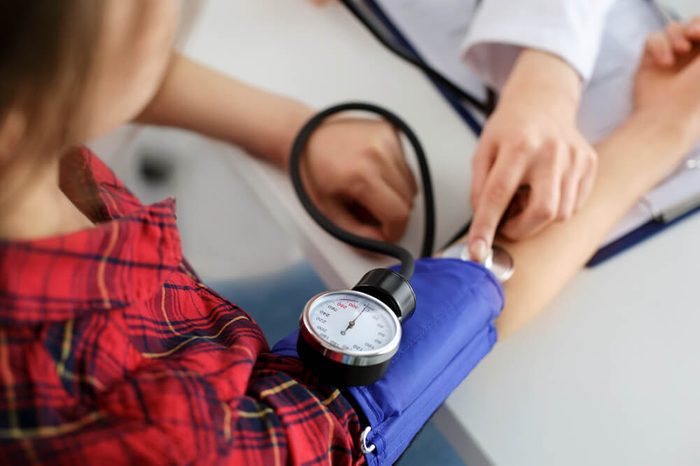
You have high blood pressure
“One of the well-known health risks that occurs with deficient sleep is high blood pressure,” says Raghu Idupuganti, MD Adult and Pediatric Anesthesiology, NYC Surgical Associates. “Lack of sleep also leads to increased risks of other heart-related illnesses, such as heart attacks and irregular heartbeats.”
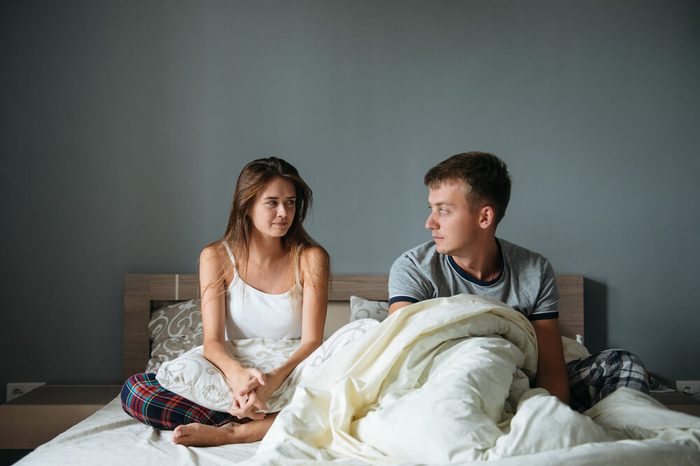
You have no sex drive
Sleep deprivation can take a serious toll on your sex drive. “Testosterone is key for sex drive (especially in men) and not getting enough sleep lowers testosterone,” explains Edward A. Alvarez, DDS, who specializes in treating snoring and sleep apnea. “In women, if the sleep cycle is interrupted, the body won’t release as many reproductive hormones, which affects overall fertility and desire for sex.”
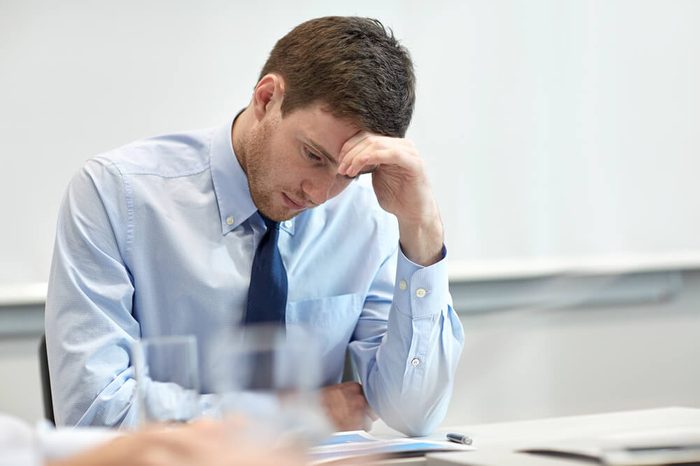
You’re feeling depressed
According to Dr. Idupuganti, sleep deprivation can lead to depression and anxiety over time. The reverse is also true—both are two of the health conditions that could be messing with your sleep. Plus, the relationship between depression and sleep is complex, according to the National Sleep Foundation, so it’s worth discussing with a sleep doctor or therapist.
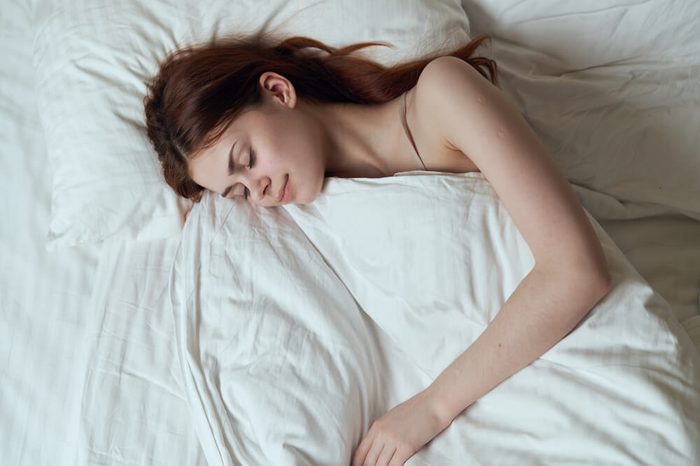
You fall asleep too quickly
If you fall asleep within minutes of your head hitting the pillow, this is not a sign that you’re lucky—it’s a sign that you’re sleep-deprived. “The process of falling asleep usually takes 15-20 minutes, if it is shorter you should look at sleep quality,” says sleep expert Michael Breus, PhD. (Check out what your sleep habits reveal about you.)
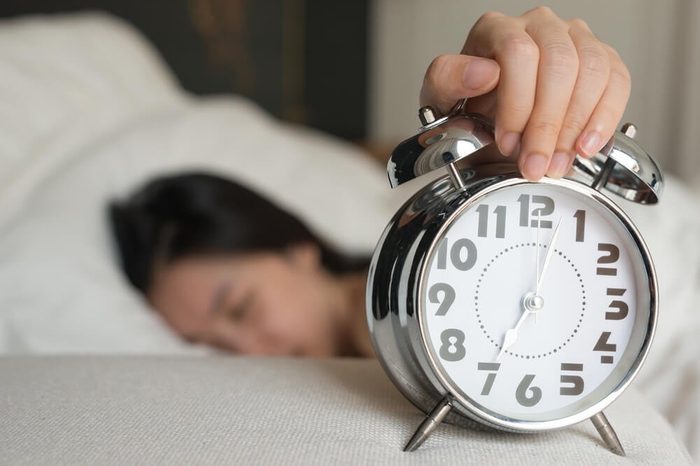
You’re always hitting snooze
If you hit the snooze button more than twice, Dr. Breus says you likely have a problem. “It’s a sign that your body is either not following its natural circadian rhythm or that you are not getting enough quality or quantity sleep.” (Here are the signs you’re sleeping too much.)
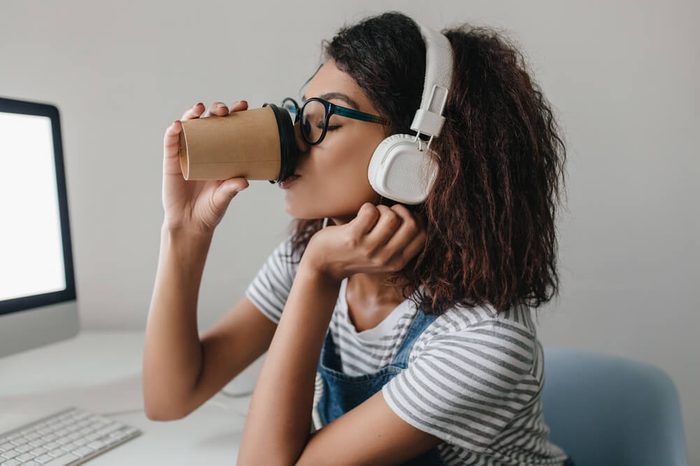
You need a daily energy drink
“If you have an energy drink daily, this could be a sign that your sleepiness could be a factor in your energy level, which may speak to sleep quality,” says Dr. Breus. (Here’s what happens to your body when you have an energy drink.)
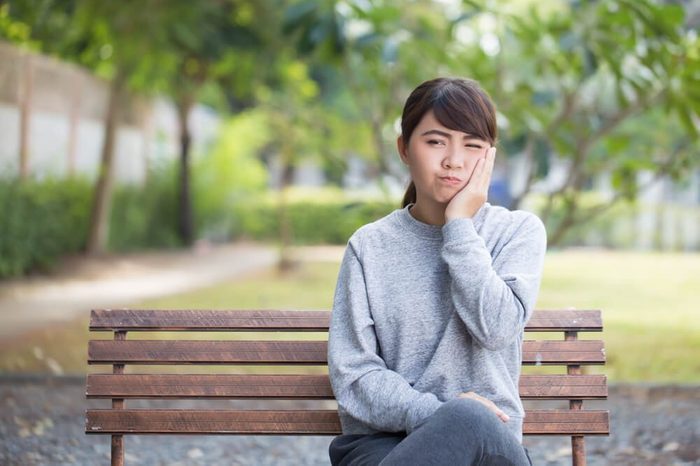
You wince when you chew your bagel
Sensitivity with chewing or easily fatigued jaw muscles can be a sign of bruxism (teeth grinding or clenching), which can be related to sleep apnea, according to Wermter. (Here’s what you need to know about TMJ.)
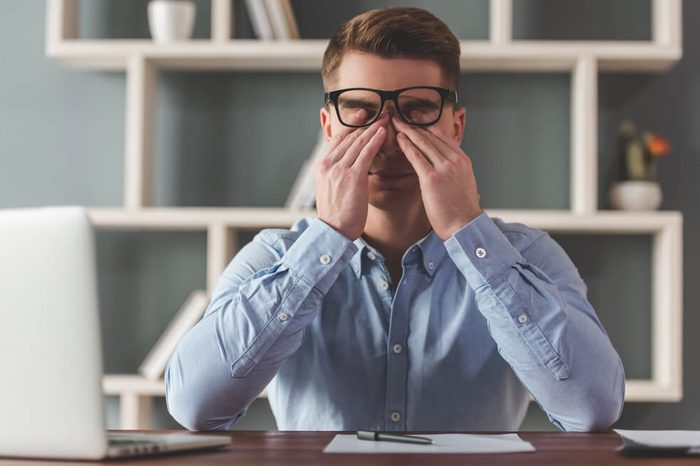
You can’t see straight
Your eyes could be feeling dry and scratchy: “Sleep deprivation impairs our tear production, setting us up for problems with diseases affecting the surface of our eyes,” says Dr. Winter. (Here are the reasons you had a sleepless night.)
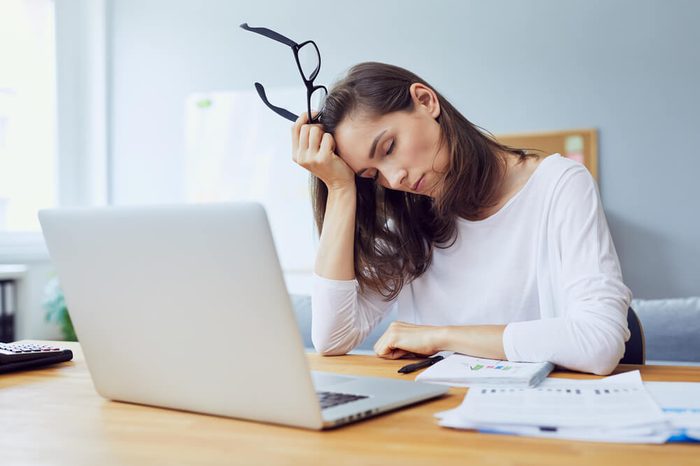
That post-lunch slump is even more painful
“Humans are part of the 85 percent of mammalian species shown to be polyphasic sleepers, meaning we’re meant to sleep in two phases during a 24-hour period,” explains Tishman. “Studies have shown that humans are built to take a midday nap as well as sleeping for eight hours at night. If you aren’t getting the necessary eight hours at night, your body’s urge for that midday nap may be extra excruciating.”
Next, learn the tricks for taking a quick nap that energizes you.
